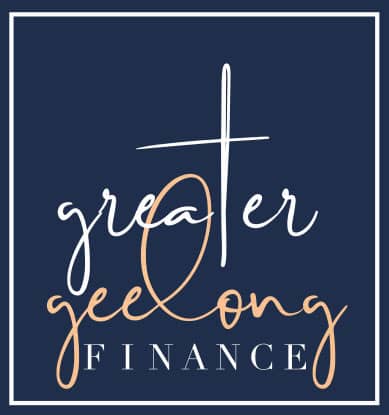Buying your first home is an exciting milestone, but it can also feel like a bit of a minefield—especially when it comes to understanding home loans. If you’re a first-time buyer in Greater Geelong, you might be wondering where to start. The good news? You’re not alone, and it doesn’t have to be as complicated as it seems. With the right information and a bit of guidance, you’ll be well on your way to getting into your first home, whether that’s in Highton, Geelong West, or by the coast in Ocean Grove.
In this guide, we’ll walk you through the basics of home loans, what you need to know as a first-time buyer, and how a mortgage broker can make the whole process easier (and save you money in the long run).
1. What is a Home Loan, Anyway?
In simple terms, a home loan is money you borrow from a lender (like a bank or credit union) to buy a property. You then pay the money back over time, usually with interest. The property itself is used as security for the loan, which means if you don’t keep up with your repayments, the lender can take the property.
The two most common types of home loans in Australia are:
-
Fixed Rate Loans: These loans have an interest rate that stays the same for a set period—usually between 1 and 5 years. This makes it easier to budget because you’ll know exactly what your repayments will be.
-
Variable Rate Loans: With a variable rate, the interest rate can change over time. While this might seem a bit unpredictable, you could end up paying less if interest rates drop. On the flip side, if they rise, your repayments will increase.
If you’re a first-time buyer in Geelong or surrounding areas, talking to a mortgage broker can help you figure out which type of loan makes sense for you. They’ll help you understand the pros and cons of each and help you make an informed choice.
2. How Much Can You Borrow?
One of the first questions most first-home buyers ask is, “How much can I borrow?” It’s an important question because it helps you understand your budget and what kind of homes you can afford.
Here’s a breakdown of the main factors lenders look at when deciding how much they’ll lend you:
- Your income: Lenders want to know how much you earn to see if you can comfortably make your repayments.
- Your expenses: Lenders will also look at your regular living costs—things like rent, bills, and any other debts (credit cards, personal loans, etc.).
- Your credit score: This is a reflection of how well you’ve managed past debts. The better your score, the more likely you are to get approved for a loan, and at a better interest rate.
- The property value: Of course, how much you want to borrow is also tied to the price of the property you’re buying.
In general, most lenders will let you borrow up to 80% of the property’s value without needing to pay Lenders Mortgage Insurance (LMI). If you borrow more than 80%, you’ll probably need to pay for LMI, which can be a significant extra cost. However there are First home buyer schemes that if you qualify can see you obatin a loan with no LMI and all you need is a 5% deposit.
A mortgage broker can help you work out exactly how much you can afford to borrow. They’ll also give you an idea of the interest rate you could qualify for and explain all the costs involved.
3. How Much Deposit Do You Need?
The deposit is one of the first things you’ll need to get sorted. In general, you’ll need to save anywhere from 5% to 20% of the property’s purchase price. The more you save, the better your loan options will be—and the less you’ll have to borrow.
- 5% Deposit: If you can save up 5% of the property’s value, you may still be able to get a loan, but you’ll likely have to pay for Lenders Mortgage Insurance (LMI), which adds an extra cost to your loan.
- 20% Deposit: If you can save 20%, you won’t need to pay LMI, and you’ll likely be offered a better interest rate as you’re considered less of a risk to the lender.
It can feel like a big ask to save up such a large deposit, but if you’re eligible, there are a few schemes and grants that could help. For example, the First Home Owner Grant (FHOG) provides a lump sum payment to eligible first-time buyers, and in Victoria, first home buyers may also be eligible for a Stamp Duty Concession, which could save you thousands on the upfront costs. Lastly, the First Home Guarantee (FHBG) is availble to First home buyers purchasing established and new home and you’ll only need a 5% depsoit and you’ll pay no LMI with a participating lender.(other eligibility criteria apply, ask your mortgage broker)
A mortgage broker can help you find out what grants or concessions you may be eligible for, as well as help you understand how much you’ll need to save for a deposit.
4. Repayments: How Do They Work?
Once you’ve got your home loan, you’ll make regular repayments to pay back what you’ve borrowed. Home loan repayments typically cover two things:
- Principal: The amount of money you’ve borrowed.
- Interest: The cost of borrowing that money.
Repayments can be made on a weekly, fortnightly, or monthly basis. Some home loans let you make extra repayments to pay off your loan faster. Others have flexible features like offset accounts that can help you save on interest.
There are two main types of loan repayment structures:
-
Principal and Interest Repayments: These repayments go toward paying off both the principal (the amount you’ve borrowed) and the interest (the cost of borrowing). Over time, you’ll pay down the principal and reduce the amount of interest you owe.
-
Interest-Only Repayments: These repayments only cover the interest on your loan for a certain period (usually up to 5 years). After that, the loan will switch to principal and interest repayments. This can be useful if you’re trying to keep your repayments lower in the short term.
Choosing the right loan structure for your situation is important, and a mortgage broker can help explain your options and help you pick one that works for you.
5. Why Use a Mortgage Broker?
If you’re feeling overwhelmed by all the home loan options, this is where a mortgage broker can make a huge difference. A mortgage broker is like a middleman who works with a wide range of lenders to help you find the best deal for your circumstances.
Here’s how a mortgage broker can help you:
- They’ll compare home loans for you: Rather than going from bank to bank trying to figure out which loan is right for you, a broker can do the legwork, comparing rates and loan features from a variety of lenders.
- They’ll explain things in plain English: The world of home loans can be full of jargon, but brokers are great at breaking things down and explaining the ins and outs so you understand exactly what you’re signing up for.
- They’ll save you time: Brokers know the ins and outs of the application process and can guide you through it quickly and smoothly, saving you time and hassle.
- They’ll help you negotiate: Mortgage brokers often have access to deals that aren’t available to the general public. They can also help negotiate better terms for you.
6. The Home Loan Application Process
Once you’ve got your deposit saved and you’ve decided on the loan, the next step is the application process. This includes:
- Applying for Pre-Approval: Pre-approval tells you how much you can borrow and helps you avoid falling in love with homes outside your budget. It also gives you a competitive edge when making offers.
- Submitting Your Documents: Lenders will need to see proof of your income, savings, and any other financial commitments.
- Getting Full Approval: Once you’ve been pre-approved and you’ve found your home, you’ll submit your final paperwork to the lender. If all goes smoothly, they’ll give you full approval for the loan.
- Settlement Day: This is the day you officially become the owner of the property! The lender will transfer the loan amount to the seller, and you’ll get the keys to your new home.
Final Thoughts
Buying your first home in Greater Geelong is an exciting adventure. With a bit of planning, the right loan, and expert help from a mortgage broker, the whole process can be a lot smoother than you might think.
If you’re ready to take the plunge into homeownership, talking to a mortgage broker is a great first step. They’ll help you figure out what you can afford, find the best loan for your needs, and guide you through every step of the process—making sure you’re set up for success in your new home.
If you’re ready to get started, reach out to a mortgage broker today. It’s one of the best things you can do to make the home buying process less stressful and more rewarding.

